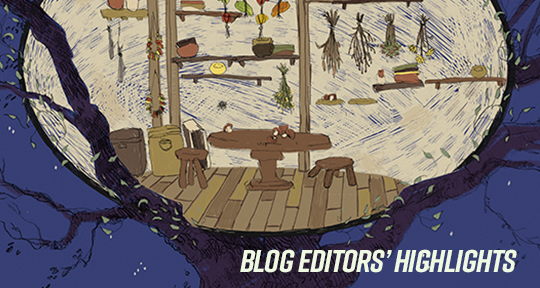Our Spring 2023 issue is alive. Animated with the wide plethora of voices, lifeforms, and phenomenon from thirty different countries, this selection of world literature is moving, feeling, singing, and changing—wonderfully emblematic of writing’s capacities to transcend the page or the screen. To aid you in your explorations of this multivalent “Vivarium,” our blog editors present their favourites from the issue, including our first ever feature of Bolivian literature, and work from Portugal’s famed modernist, Fernando Pessoa.
“Love does not fulfill itself,” the philosopher Jean-Luc Nancy once wrote, “it always arrives in the promise and as the promise.” Though it seems almost flippant, in this line is the (not so well-kept) secret that has always led me to look for love in poems, that moves me to believe there is still no better medium than poetry to offer us love’s canyons and shadows, and that it is the poem’s purposeful language which allows us to seek love out—not in the validating or reciprocating constructs of daily life, but in truer forms: those sublime visions, conquerings of time, and suspensions of reality. Nancy knew that love is unfulfillable because its absolution is impossible, but it still comes to us as inextricable from eternity: the promise of love is love’s own perpetuity, the promise that love’s law is the one that overcomes all others. And though there are great, sweeping narratives of love in novels, there are wondrous portrayals of love in theatre and in cinema, there are photographs and paintings that capture love’s possibilities and devastations, but the reason I return to the poem is that it, too, is a form that recognises its own innate impossibility (because how can a word capture any of this), and then goes on to form its own laws, which enact the impossible.
Mariana Berenice Bredow Vargas’s alluring, propulsive work, “Let it Go,” is one of the most magical love poems I have come across in some time. Translated with the expert, time-keeping ear of Forrest Gander (whose prowess is especially evident in his rendering of the last lines), the piece begins with an invitation and does not wait a beat before seemingly taking us by the hand to sweep over the landscape, magic carpet-ing over the exhaustive obligations of everyday patterns and collected burdens, up and towards the vast and imagined horizon that separates the awake and the dreamed, into the kaleidoscoped marvels and cacophonic frequencies of everything the world has to offer. The poem is an exalted plea for the lover to recognise the availability of immense beauty and profound joy, but also a tender admittance that one can only get there travelling alongside another: “. . . there’s life // dreaming you past the pain, let’s go, I want / to dream it too . . .” Balancing the imploring voice of a hopeful romantic with the resonant fact that fantasy is essential to anyone wanting to live, within Vargas’s impatient call is the promise of love—a promise so beautiful, it almost doesn’t need to be kept. READ MORE…

